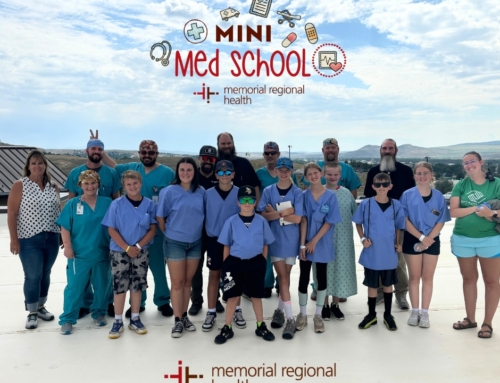Relating to People Living with Dementia: Tips for Communicating Effectively and Compassionately
Don’t miss any updates when you sign up for our Living Well e-newsletter here.
Chances are you know someone who is living with dementia. According to the Alzheimer’s Association, 76,000 people aged 65 and older are living with Alzheimer’s in Colorado alone.
It’s a challenging, disheartening disease for everyone involved—family members, friends, caregivers and, of course, the person whose brain is failing them.
Yet people living with dementia continue to need our empathy and care. Here are some tips for relating to and communicating with them in ways that are kind and helpful.
Practice Patience
Remaining patient can certainly be difficult, but it helps to remember that the person with dementia is doing the best they can. Their behaviors are different than they used to be because their brains are different than they used to be.
Be Respectful
The person with dementia is living with a terrible, degenerative disease. Any challenging behaviors and words are not their true essence. Always try to be respectful and compassionate. Smile, and look them in the eye.
Acknowledge, Affirm and Redirect
AAR is an excellent acronym to remember. Instead of ignoring challenging behaviors, try AARing them. First, acknowledge the difficulty and the person’s feelings. “I can see that you’re having trouble ________ and are upset because…” Second, affirm the person’s worth. “You’re a good person. I care about you.” And third, never argue. Instead, redirect their behavior. “I brought your favorite cookies for snack.”
Take a Virtual Dementia Tour
Memorial Regional Health is hosting the world-renowned Virtual Dementia Tour. Participants don special goggles and gloves that alter their perceptions in a manner that simulates the effects of cognitive decline. This evidence-based, patented program helps build understanding and support.
You’re invited to sign up for an individualized, 30-minute slot to experience what dementia is like.
Wednesday, June 28
3:30, 4:45 and 6:00 p.m.
Reserve your slot by calling Sheli Steele, 970-826-3106 or emailing [email protected].
Keep It Short, Simple and Safe
KISS is another helpful acronym to keep in your toolbox. If you’re planning to include a person living with dementia in an outing or in-home activity, remember to keep it short, simple and safe. Set realistic expectations. Limit choices. And have back-up plans in case things go south.
Let Them Do
Sometimes people living with dementia want to do things themselves, even though they can no longer do them well. It’s important to allow them this autonomy whenever possible. Try doing things with them instead of for them.
Spend Quality Time Together
Keep an eye out for activities the person with dementia still enjoys. Listening to music, playing a simple card game, reading aloud to them, reminiscing about old times, watching a favorite movie or going for a car ride are a few ideas. If the person is comforted by physical touch, consider holding hands, rubbing their back or dancing.
If you’re getting frustrated, pause before responding. Take a moment to breathe and remind yourself that cognitive decline is the cause—not the person. Stay calm, and don’t escalate the drama.
Dementia Assessments in Craig
Memorial Regional Health primary care providers offer cognitive decline screenings. MRH also provides access to visiting neurologists from SCL Health St. Mary’s. To make an appointment for an assessment of possible cognitive decline and to learn more about treatment and care options, call 970-826-2400.






